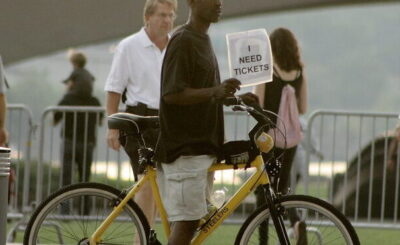By Julie Shon
The 2021 mayoral primaries are only a few months away, and New Yorkers are eager for new leadership to bring the city back from all it has been through in the past year. The next mayor will direct the city’s recovery as it grapples with the long-term effects of the COVID-19 pandemic.
Not only have new challenges such as vaccine distribution surfaced during the past year, but the pandemic also created an urgency to address issues that have long been present. The most pertinent issues on New Yorkers’ minds include economic revival, revamping the subway system, alleviating crime rates, and police reform.
According to a poll by Pulse of the Primary, 57% of likely voters revealed that “the pandemic caused a significant negative impact on my household finances.†The city is in a tumultuous economic time, with many residents championing rent relief and stimulus checks. Entrepreneur and former presidential candidate Andrew Yang promises to implement a basic universal income for all New Yorkers, distributed on a sliding scale based on income level. Yang states on his campaign website, “As we recover from COVID, we must reinvest in New Yorkers who have systematically been left behind.†He emphasizes in his campaign the need to eliminate systematic immobility whether it comes to income, housing, or vaccine distribution.
Another important issue that candidates are focusing on is the notorious public transportation system. There is debate over whether the city should gain control of the MTA to better serve its
people. City comptroller Scott Stringer, one of the leading mayoral candidates, argues that doing so will create disastrous debt that the city cannot afford. Former federal housing secretary Shaun Donovan is pledging to find additional sources of revenue to fund alternative modes of transportation such as bike lanes and e-scooters.
Most of the forerunners including Stringer, Donovan, and former MSNBC analyst Maya Wiley agree the bus lines must be upgraded. Buses serve many New Yorkers in outer boroughs, and lower-income individuals rely on them. Queensborough Community College (QCC) student Loreta Xenakis says, “We need to improve the safety and cleanliness of our transportation system to ensure that everyone feels comfortable using it.â€
From subway slashers to burglaries to shootings, the rate of crime has significantly increased in the past year. According to Ali Watkins of the New York Times, “New York’s 447 homicides made 2020 the city’s bloodiest year in nearly a decade.†These numbers, coupled with the increasing distrust in police, are creating a fierce demand for better safety.

Brooklyn borough president Eric Adams is intimate with the issues of police reform. He has experienced both sides of the law, as a victim of police brutality when he was a teenager, and as a NYPD officer earlier in his career. He is calling for changes such as ceasing the controversial Stop-and-Frisk policy, but supports the police department as a whole. Adams wrote in his vision statement, “At the same time we face a crisis of confidence in our police. And we cannot have lower crime without greater trust.â€
During a PIX11 News interview with Dan Mannarino, Yang stated, “I think we need to model ourselves after the federal government and have a civilian head of the NYPD…and I think having a police commissioner that is independent of the culture there will help us make policing more effective but also curb any civil rights abuses that people have witnessed here in New York.â€
Over twenty candidates are in the running for what is turning out to be one of the most poignant elections in recent years. QCC student Arbine Ryan says he seeks “a mayor who is willing to serve the community, stand up against injustice, and provide equal opportunities to all groups of people.†New Yorkers have been largely unsatisfied with incumbent Bill de Blasio, and look forward to a leader who is willing to put in the effort to unify and rebuild the city.





